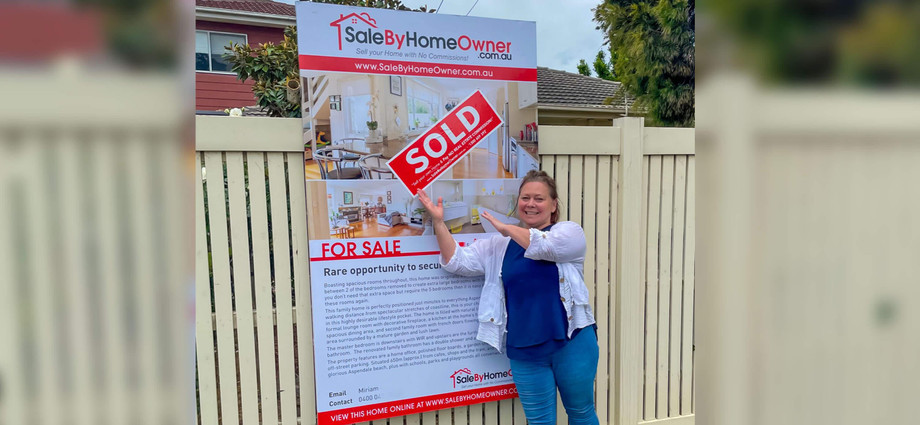Selling your house without the help of a real estate agent can be a rewarding experience, allowing you to retain more of your property’s sale proceeds. However, one of the biggest concerns when it comes to how to sell your house yourself is ensuring that all the paperwork is in order. At Sale by Home Owner Australia, we specialize in guiding homeowners through every step of the private sale process, including preparing the necessary documents. Here’s what paperwork you need to prepare to sell your house yourself and make the process as smooth as possible.
1. Contract of Sale
The most important document you’ll need when selling your house is the Contract of Sale. This legal agreement outlines the terms and conditions of the sale, including the price, deposit, settlement date, and any other contingencies. The contract protects both the buyer and seller, ensuring that both parties understand their rights and obligations.
When preparing your how to sell your house yourself paperwork, you’ll need to ensure that this contract is legally compliant with local property laws. You can purchase a standard contract template online, but it’s highly recommended to have a solicitor or conveyancer review or prepare the contract for you to ensure all legal aspects are covered. At Sale by Home Owner Australia, we can assist in connecting you with legal professionals who can help prepare a solid contract of sale.
2. Property Disclosures
In many states and territories, sellers are legally required to disclose certain information about the property, such as known defects, past issues (e.g., flooding, pest problems), and any encumbrances on the title. These disclosures are essential to ensure the buyer is fully informed before agreeing to the sale.
When deciding how to sell your house yourself paperwork, make sure to include any required property disclosure statements. Failing to disclose relevant information can result in legal complications later on, so it’s important to be honest and transparent.
At Sale by Home Owner Australia, we offer guidance on the specific disclosure requirements for your area to ensure that you are compliant with local regulations.
3. Proof of Ownership
You’ll need to prove that you own the property you are selling. This typically involves providing a copy of the certificate of title or a recent land title. This document confirms your legal ownership of the property and provides details about any mortgages, liens, or other encumbrances attached to the property.
If you have a mortgage, you’ll also need to get a mortgage discharge statement from your lender. This document outlines how much you owe and allows the bank to release its claim on the property once the sale is complete. You’ll need to clear this debt before you can transfer the property’s title to the buyer.
4. Vendor Disclosure Statement (if applicable)
In some jurisdictions, a Vendor Disclosure Statement is required as part of the sale process. This document provides information on the condition of the property, including any known issues or defects. It may also include details about zoning, any building permits, or planning restrictions that may apply to the property.
This statement helps protect the seller by making the buyer aware of any potential risks or issues before they commit to purchasing the property. Check with a solicitor or conveyancer to see if this is a necessary document for your property sale.
5. Identity Verification
When selling your property privately, you may be asked to provide proof of identity. This is especially important in ensuring the legitimacy of the transaction and preventing fraud. Common forms of identity verification include a passport, driver’s license, or another government-issued photo ID.
Be sure to have these documents readily available during the sale process to avoid delays. Your solicitor or conveyancer can advise you on any specific identity verification requirements in your area.
6. Title Search and Property Information
Before listing your property for sale, it’s a good idea to conduct a title search to ensure that there are no surprises regarding the ownership or history of the property. This search will confirm whether there are any outstanding mortgages, liens, or encumbrances attached to the property that might affect the sale.
It’s also helpful to gather any additional property information that might be useful to potential buyers, such as zoning details, recent renovations, building permits, or warranties on appliances or systems (e.g., heating, cooling, plumbing). Having this information prepared will make the process smoother when it comes time to negotiate and finalize the sale.
7. Settlement Statement
Once you’ve accepted an offer from a buyer, you’ll need to prepare a settlement statement. This document outlines the final sale price, any adjustments for prepaid rates or taxes, and the distribution of funds from the sale. The settlement statement is typically prepared by a solicitor or conveyancer and is presented on the settlement day when the property officially changes ownership.
At this stage, all documents related to the transaction will be finalized, and the buyer will provide the balance of the purchase price, minus any deposit already paid. You’ll also complete the title transfer and hand over the keys to the new owner.
8. Transfer of Ownership (Title Transfer)
The title transfer is the legal process of transferring ownership of the property from you to the buyer. This document must be completed accurately to ensure that the buyer is recognized as the new legal owner of the property.
Your solicitor or conveyancer will typically handle this paperwork on your behalf, ensuring it is lodged with the relevant government authorities (e.g., land titles office). It’s essential to ensure that the transfer is completed correctly to avoid any complications or delays in the future.
Conclusion
Selling your house privately is an empowering choice, but it comes with the responsibility of handling all the paperwork yourself. By preparing the necessary documents such as the contract of sale, property disclosures, proof of ownership, and title transfer paperwork, you’ll be able to sell your property confidently and legally.
At Sale by Home Owner Australia, we provide expert guidance and connect you with trusted legal professionals to help you navigate the paperwork involved in selling your house privately. If you’re ready to take control of your sale and avoid agent commissions, we’re here to support you every step of the way. Reach out today to get started!










